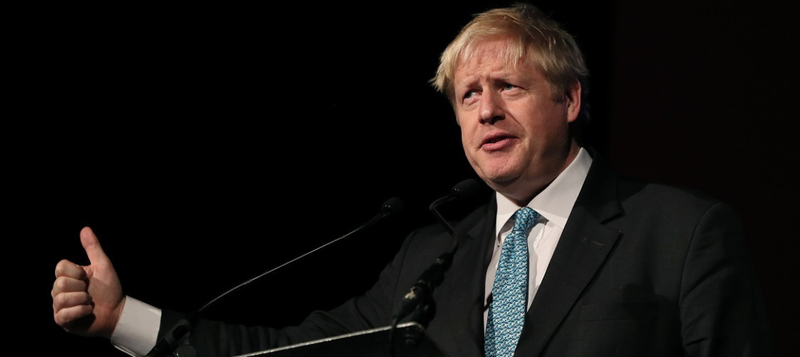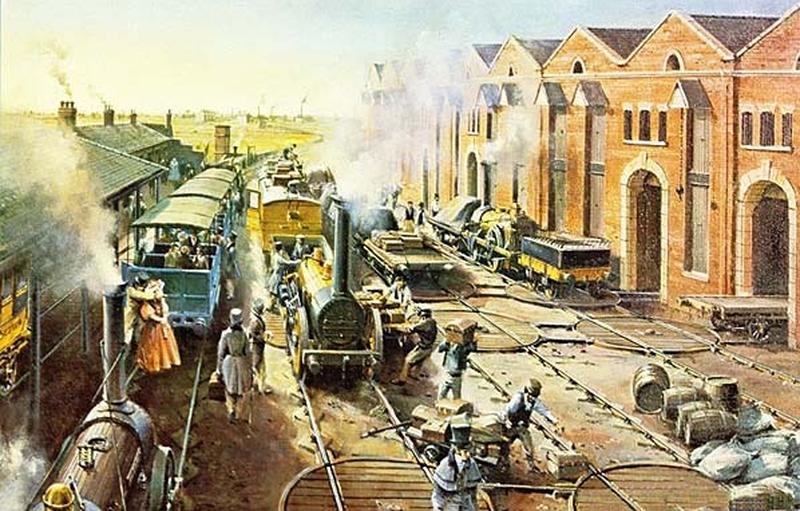Jonathan Schofield assesses the PM giving the railways back to the people of the North
The most interesting element about the way Boris Johnson and his government is acting is its complete transparency.
The only reason he prorogued Parliament was not the balderdash about the Queen’s Speech and the conference season, it was because he didn’t want to be asked questions in Parliament. Of course, he was economical with truth with the Queen to get his way.
Similarly, his giving of gifts, like a politically motivated Santa Claus, in regions he knows had strong leave Europe campaigns, is an obvious tactic to try and buy votes in the coming general election.
Perhaps a far better solution than Johnson’s regional gift would be to bring back a national state-owned rail system
In the MEN on Friday he was quoted as saying: “Today I’m announcing my intention to give the railways of the north back to the people of the North, back to the places where they were born, back to Stockton and to Darlington, back to Liverpool and Manchester.
“It’s time for the North to run its own trains,” he said, adding: “On local lines in metropolitan areas we will give greater control over fares, service patterns, rolling stock and stations.”
Johnson promised to be ‘generous’ over money for capital projects but warned regions they may have to raise their own money to achieve all they want.

Of course, northern leaders such as Andy Burnham, Greater Manchester (GM) Mayor have welcomed the move, but they are wise to have welcomed it cautiously. As Burnham says, the notion of more control of the rail system might be fine in the medium to long term, but given the problems right now – especially with hapless train operator Northern Rail – cash is needed immediately.
So is Johnson simply shifting responsibility to the regions, so if rail systems in those areas continue to fail, the local rather than national government can be blamed?
Burnham admits that raising extra money may be difficult but thinks the endgame is worth it, saying, “We have asked for more control of rail and we have been given that.”

Part of the problem for Burnham is that, despite the lofty title of his position as GM Mayor, his powers are limited. Infrastructure control over GM should be within his remit as his office can take a larger strategic view and, as he is elected, he can then suffer the consequences of failure by being voted out.
He fights shy of suggesting council tax rises will fill funding shortfalls, if and when Johnson's great gift of local rail control kicks in. Burnham also seems to understand that improvements can’t take place in isolation.
To this effect he has talked about working with his counterpart on Merseyside, Steve Rotherham, to coordinate plans. He reckons that with full control of the stations, for example, an opportunity would arise to sell off land and develop around those stations.
This might also allow adaption of this year's Greater Manchester Spatial Framework, which caused such controversy over house-building on the greenbelt. The brownfield sites around stations may help carry the house-building burden instead.

The problem is, would this raise anywhere near the money a 21st century modern transport system requires? Probably not. Johnson mentioned the Liverpool to Manchester Railway of 1830, the oldest passenger rail system in the world - but back then, and subsequently, as Manchester became the first railway city, it was all about private investment.
Given the revenues coming in to individual pockets in this region through industry, engineering, shipping and banking, people could throw fortunes at speculating on railways. That sort of private money is not around in the NW any more and, more importantly, the world does not work in the same way.
Meanwhile it was exactly the chaos of the privately owned railway companies in the following century that led to their nationalisation after World War II. Perhaps a far better solution than Johnson’s regional gift would be to bring back a national state-owned rail system, as Labour propose, with tweaks to their plan.
This would need to be British Rail Plus; efficient, strategic, not crushed by trades union excess - nor, as the present system is, by a bedlam of private companies paying dividends to shareholders who are, in effect, state subsidised. Nice work if you can get it.
In that case, Burnham could concentrate on properly integrating other elements of GM public transport with the rail network. Even a ten percent improvement in that would be a start.
Johnson’s gift of greater autonomy for the rail systems in the regions needs to be treated with a pinch of salt. The northern leaders are right to be cautious. Clearly he’s found the money tree Teresa May couldn’t, but behind the gift there is a clear ulterior motive. The man is obsessed with getting his way over leaving Europe and the timing of his announcement must be treated as part of an imminent general election campaign. It’s a blatant attempt at proving his affection for regions that voted predominately to leave the European Union. Whether he'll retain such affection if he gets voted back in as PM is open to question.














